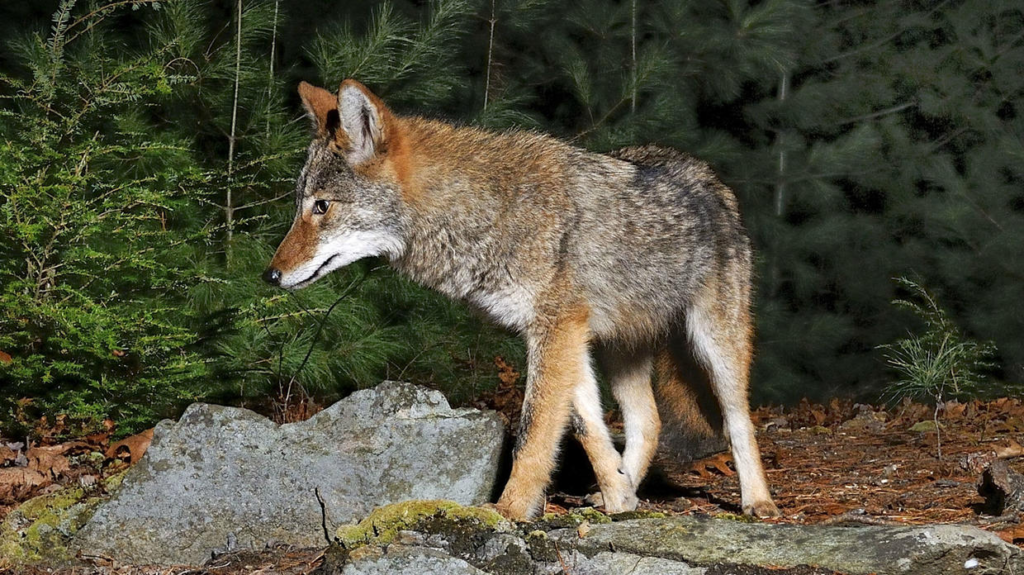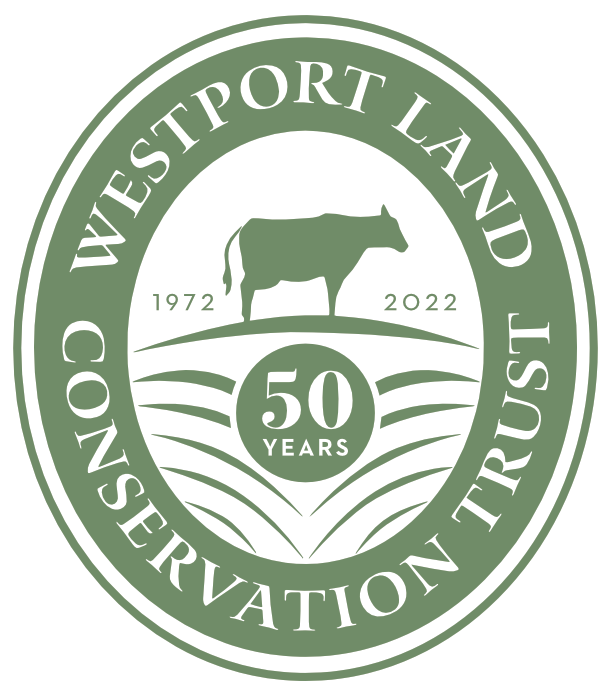
For some the sighting of a coyote brings an instant sense of alarm and fear. People often equate them with the wolves they have seen on TV out west who are much larger, and naturally more aggressive. However, coyotes are just naturally curious and playful animals within their pack. This leads to misinterpretations of their actions and escalation. Coyotes in Westport tend to run in small packs and as individuals. You may hear howls at night that sound like a large number of animals, but often times there are no more than 3-4. A large piece of contiguous land may contain a pack, but in more developed areas it is most common to see them solo.
January-March is mating season and they are very active. Much like deer, males are seeking mates within their territory while also establishing and defending their territory from competing males. It is not uncommon, especially during mating season, to see them active during the day. Activity during the daytime is not an indication they are sick. If a coyote appears lethargic, is not reacting to sound deterrents or is approaching leashed pets that would be a good cue to call animal control.
Coyotes in our area are usually more robust in appearance than they are in weight. Many community members in Westport have made observations to WLCT they witnessed a coyote that may have been upwards of 60 lbs, but that would be rare. Most coyotes are about 35-45 lbs across the state. During mating season they may perceive large dog breeds as a threat so keeping pets leashed is important. Coyotes do perceive small dog breeds as prey all year round and will occasionally be aggressive if the pet is left along to defend itself. Below are a few suggestions to keep you and your pet safe around coyotes.
Pets: Be aware when walking in the woods and leash your dog if you spot a coyote or sense your dog detects a threat. Remember that large dogs can be perceived as a threat during breeding season, but that is not typical and often they will scare away coyotes. If your backyard abuts woods small dogs are at a higher risk when left alone. Do your best to escort the pet during the early light hours and early evening hours.
Food: Never feed wild animals (aside from birds)! If you leave out food for wild animals they will continue to return to that reliable source of food. While it is always exciting to see wildlife up close, those interactions may deteriorate quickly. Keep your trash cans secured!
Noise Deterrence: Coyotes are creatures of habit and there are a few simple things you can do to deter them from your property. If you observe them in your backyard deter them by yelling, banging pots and pans, using an air horn or generally trying to make a lot of noise! Noise deterrence is often enough to keep them from nearing your residence and most times, they will associate it with an unpleasant place and not return.
Ultimately coyotes are an important part of our ecosystem, helping to keep small mammal and rodent populations in check. As we continue to reforest Massachusetts we will see even more coyotes and having an understanding and appreciation of them will only help us to responsibly share the land.

